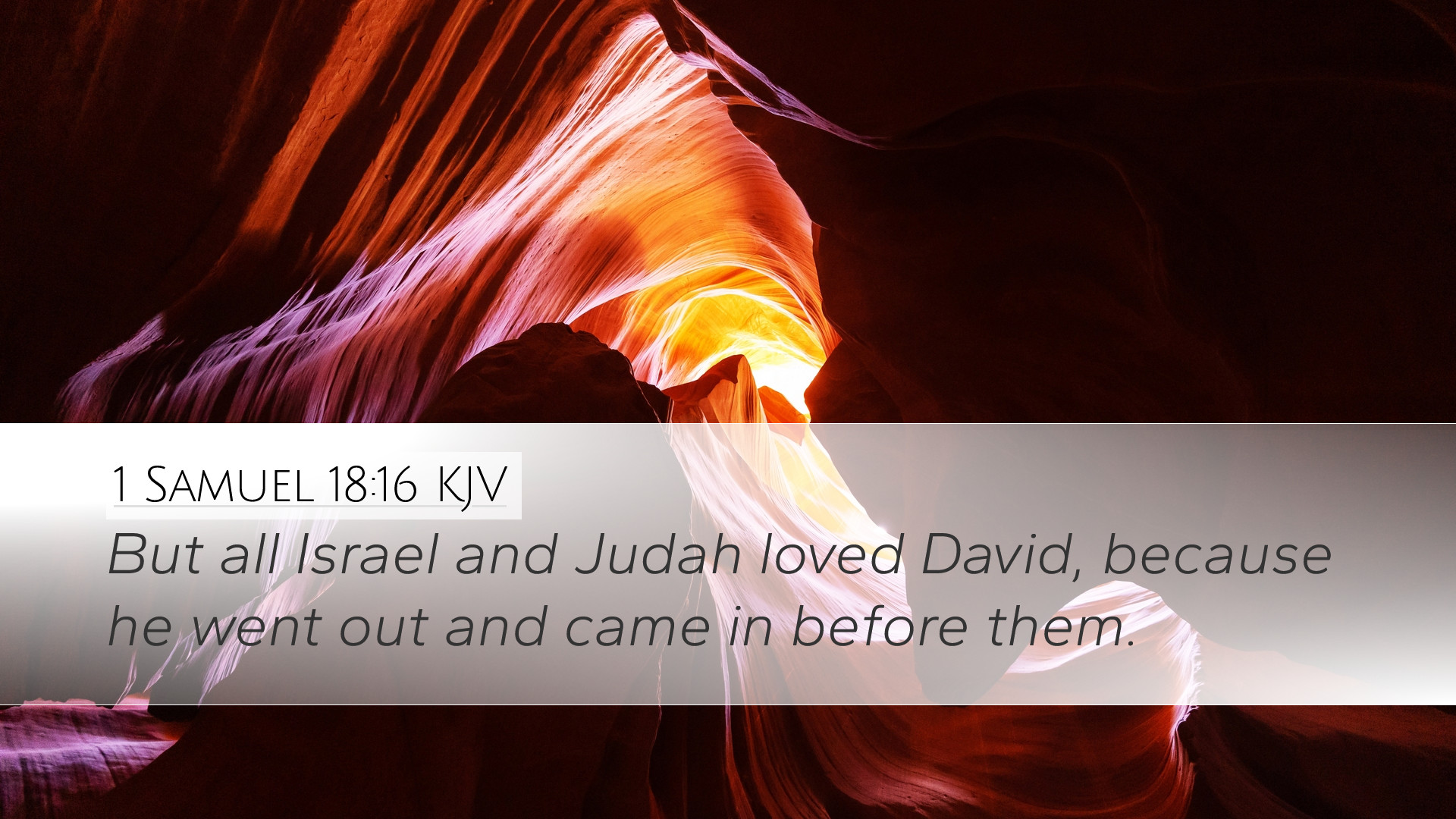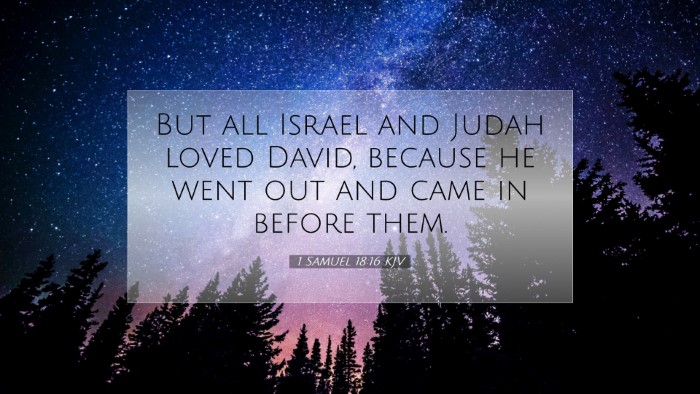1 Samuel 18:16 Commentary
Verse: "But all Israel and Judah loved David, because he went out and came in before them."
This verse captures a pivotal moment in the life of David, indicating the growing favor he had among the people of Israel. The context of this passage highlights the juxtaposition of David's rising popularity against the backdrop of King Saul’s diminishing favor. Below, we will explore insights from renowned public domain commentaries to glean a deeper understanding of this verse.
David's Popularity and Leadership
Matthew Henry remarks that David's leadership qualities were evident in his conduct, where he “went out and came in before them,” denoting a form of accessibility and relatability. This behavior had endeared him to the people, who saw him not just as a warrior but as a shepherd-like leader who was approachable. Furthermore, his military exploits, particularly against the Philistines, reinforced public admiration.
Albert Barnes elaborates by noting that the phrase “went out and came in” implies David’s active participation in both civil and military affairs, showcasing his competence in leadership. This fosters a sense of trust and loyalty among the people, who favored David for his bravery and skill. In ancient Near Eastern culture, successful military leaders were typically venerated, which explains why the people of Israel and Judah cherished David.
The Role of Divine Providence
Adam Clarke highlights the significance of divine providence in the favor bestowed upon David by the people. He points out that David’s rise was orchestrated by God, as He had chosen David as the rightful king. Clarke emphasizes that this verse reflects the broader narrative of God preparing David for kingship while simultaneously signaling Saul's impending rejection. The verse illustrates the truth that God’s purpose will ultimately prevail despite human opposition.
Contrast with Saul's Reign
The contrast between David and Saul is apparent. While David was surrounded by the affection of the people, Saul was increasingly filled with jealousy and inadequacy. Matthew Henry notes that “Saul's heart was filled with suspicion and rage” regarding David, which would soon lead to further conflict. This sets the stage for the tension that defines the remaining chapters of 1 Samuel.
Implications for Pastoral Leadership
This verse serves as an instructive lesson for contemporary pastoral leadership. Albert Barnes suggests that leaders are often defined by how they interact with situations and people. A pastor should strive to demonstrate humility and approachability, much like David. The successful ministry often lies in a leader’s ability to connect with their congregation, earning trust and affection through genuine relationships.
Theological Reflections
The theological implications are profound. Adam Clarke asserts that this moment serves as a reminder of God's sovereignty in choosing leaders. For theologians, this suggests that God's divine choice does not always align with human expectations or preferences. This reinforces the notion that God’s purposes will be fulfilled through chosen vessels, even amid human conflict and rivalry.
Conclusion
1 Samuel 18:16 encapsulates a moment of profound significance in Israel's history, setting the stage for David's rise and Saul's decline. The love and admiration of David by the people reflect not only his qualities as a leader but also the unfolding of divine providence in appointing him as the future king. For pastors, students, and theologians alike, this verse encourages a closer examination of leadership qualities, divine selection, and the dynamic interplay of public perception and personal integrity.


